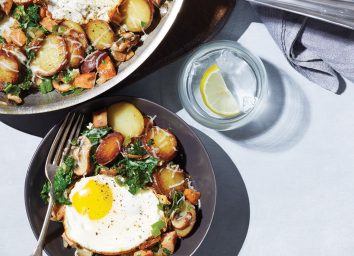9 Eating Habits That You Think Help You Lose Weight, but Actually Don’t
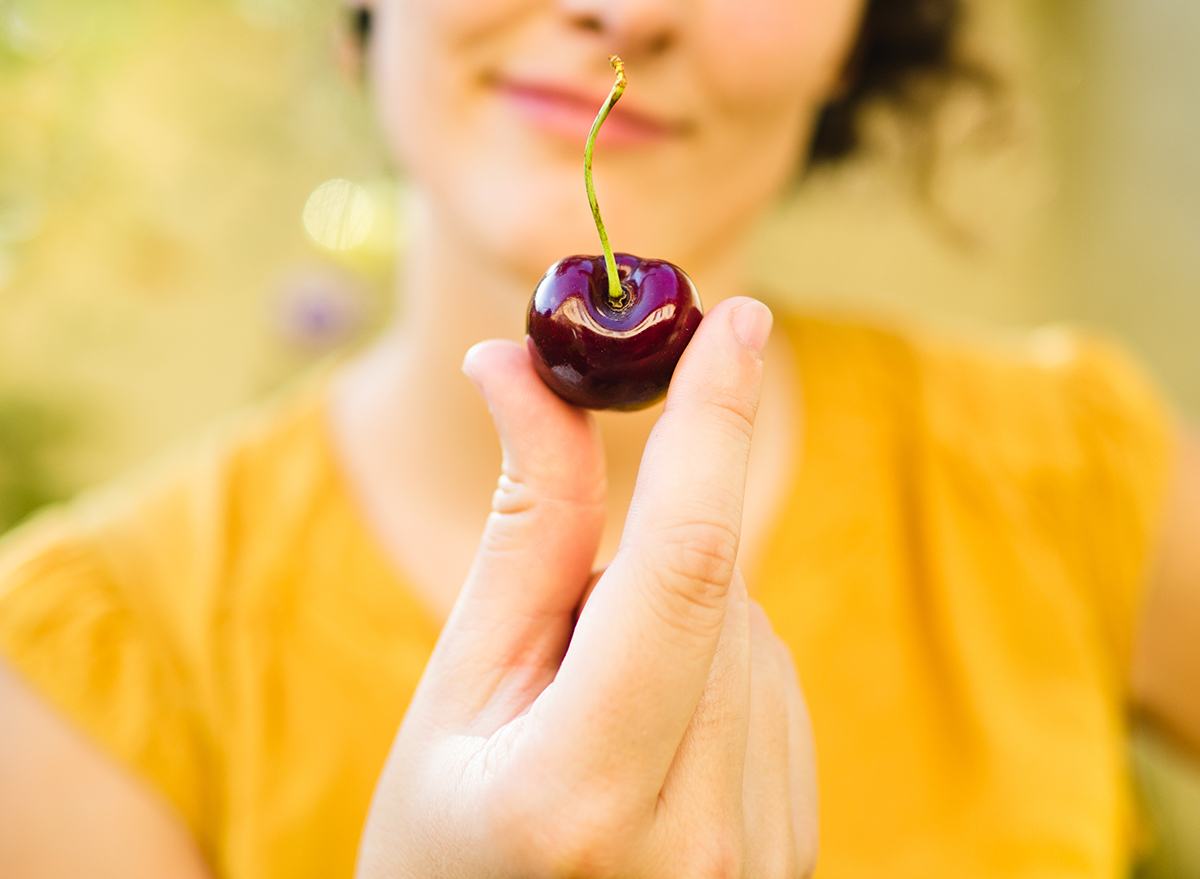
The ancient Greek philosopher Heraclitus of Ephesus once said that change is the only constant in life, and he may as well have been talking about the rules of weight loss.
The rules about how to eat healthy and lose weight have been tweaked and adjusted so often with every new diet strategy that it can be hard to keep track. And amid all the confusion and uncertainty, we often stumble into eating patterns that do more harm than good.
It is very common for people to develop eating habits that they believe are the answer to losing weight, but can backfire, say dietitians. And that’s unfortunate because following misguided advice that doesn’t work can make you feel that something’s wrong with you. Here are some of those eating habits that may be secretly undermining your goal of losing weight. Read on, and for more on how to eat healthy, don’t miss Eating Habits to Lose Abdominal Fat As You Age, Say Dietitians.
Eating very little
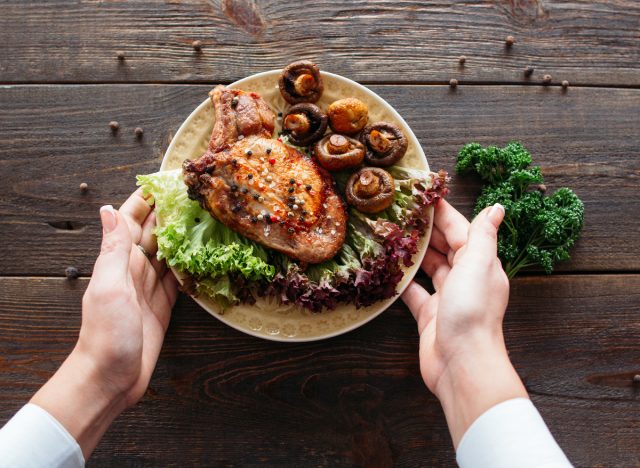
Logic tells us that if we’re gaining weight because we’re eating too much, the opposite—eating very little—should help us lose weight. That’s just wrong and it’s a common approach that often backfires. “Not only can this lead to increased cravings and potentially feeling more out of control around food, but entering the starvation zone can slow down your metabolism through adaptive thermogenesis,” says medical board member Lisa Moskovitz, RD, a registered dietitian with the NY Nutrition Group and author of The Core 3 Healthy Eating Plan. If your body doesn’t get the calories and nutrients it needs to function properly, it will respond by holding onto fat cells, she says.
Eating loads of smoothie bowls
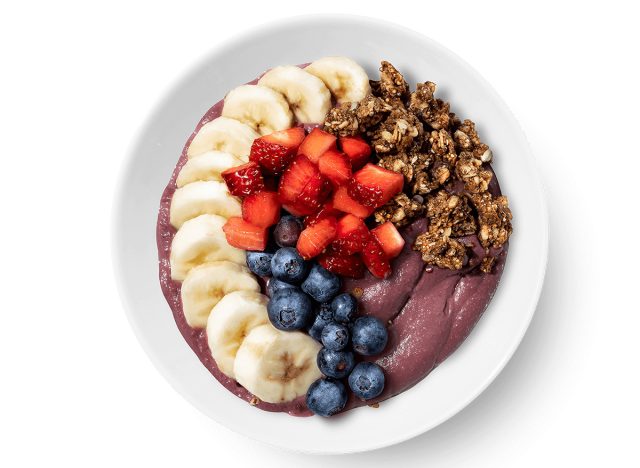
We know what you’re thinking: “Hey, I’ve been told these foods are super healthy, loaded with antioxidants, filled with tropical fruits and vegetables. What gives?” Well, yes fruit and antioxidants are good, but not at the expense of too many calories and grams of sugar.
“Top these fruit bases off with nut butters and granolas and more fruit and you have a very big calorie bomb that ultimately may lead to more sugar cravings,” warns medical board member Amy Shapiro, MS, RD, founder of Real Nutrition. You need to be choosey about the ingredients that go into smoothie bowls. “Watch your toppings; skip the granola and enjoy nuts, chia seeds, and coconut to reduce the sugar even more,” Shapiro says.
Thinking ‘gluten-free’ means ‘healthier’
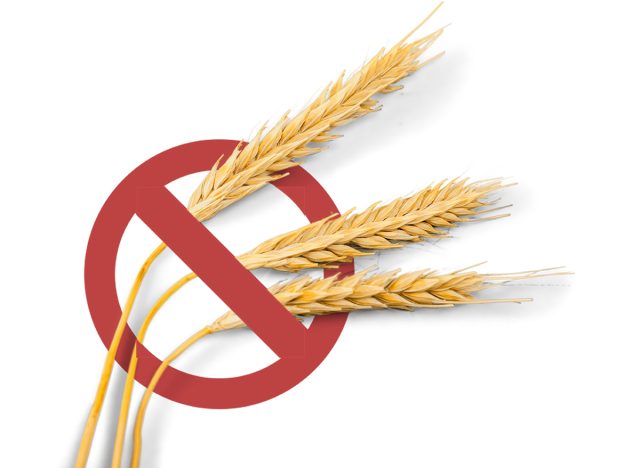
It doesn’t. And it certainly doesn’t mean fewer calories. In fact, going for the gluten-free stuff often leads to eating more processed foods and gluten-free foods often contain more calories than regular wheat products. “Many people believe gluten-free equals low carb, but this is incorrect,” says Shapiro. “If you want to go gluten-free, do not eat the food substitutes like bread, cakes, cookies, and chips. Eat whole foods like potatoes, beans, and gluten-free grains to see results.”
Following an ultra-strict low-carb diet
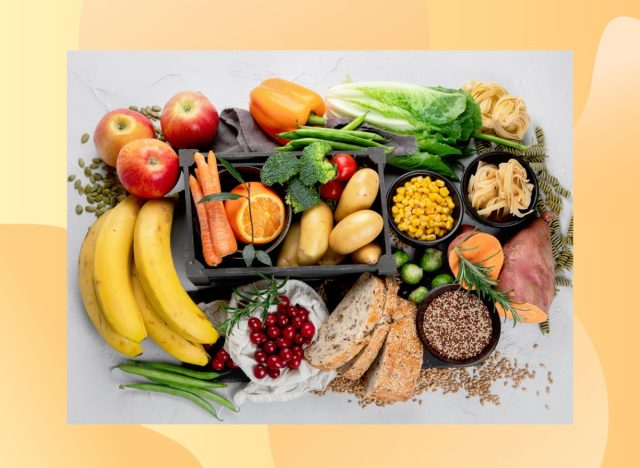
Carbohydrates have been vilified so often in diet books, online programs, and food advertising that people have taken “watching your carbs” to the extreme by trying to cut out almost all carbs. Big mistake. “Yes, you cut calories and may lose water weight initially since carbs hold water in the tissues, but the weight loss typically is fleeting,” say Eatthis.com medical board members Tammy Lakatos Shames, RDN, CDN, CFT, and Lyssie Lakatos, RDN, CDN, CFT, also known as The Nutrition Twins.
Carbs are fuel for the brain and your muscles. “Cutting carbs completely is unrealistic since carbs are fuel for the brain and muscles. Without them, you’ll crave the quickest pick-me-up you can find – SUGAR. When you give in to the craving, often you end up throwing in the towel on healthy eating completely, thinking you have to be very stringent with your diet to see results.” That’s not true.
Skipping meals
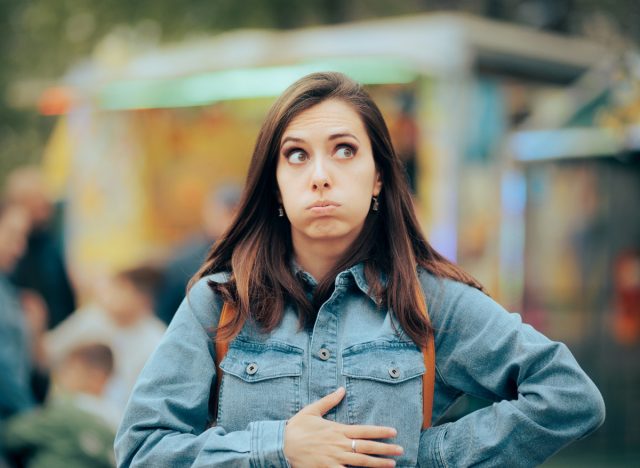
This is a variation of the “eating very little” misguided habit above. You skip breakfast, lunch, or dinner in an effort to cut way back on calories. “Unless you’re intermittent fasting and there’s some consistency to your eating plan, and waiting long hours to eat, will end up making you so hungry that you eat back all of the calories you would’ve eaten at your meal, and then some,” warn The Nutrition Twins.
Avoiding all fats all the time
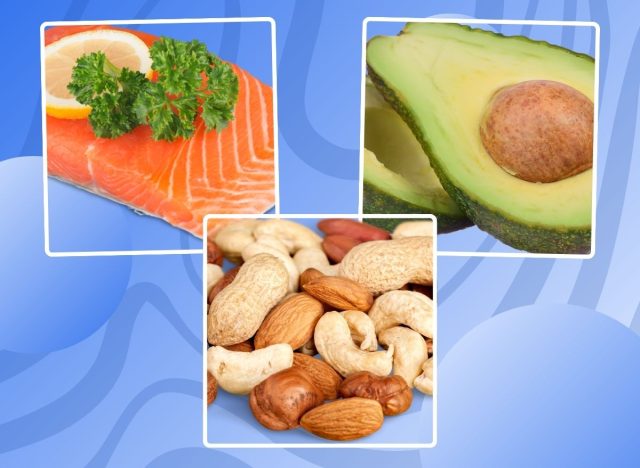
Obsessing over counting daily fat grams is not only not fun, but it’s also not healthy. “Fat is not the enemy and it’s healthy to include some healthy fats like nuts and olive oil when trying to lose weight,” says registered dietitian nutritionist Lisa Young, PhD, RDN, author of Finally Full, Finally Slim. Fat is satiating, so, even though it’s high calorie, it can help you lose weight.
“The key is to include healthy fats in reasonable portions,” says Dr. Young. “Enjoy 1/4 cup of nuts as a snack and use one tablespoon of full-fat salad dressing (olive oil-based) on your salad.”
Choosing low-fat or fat-free products
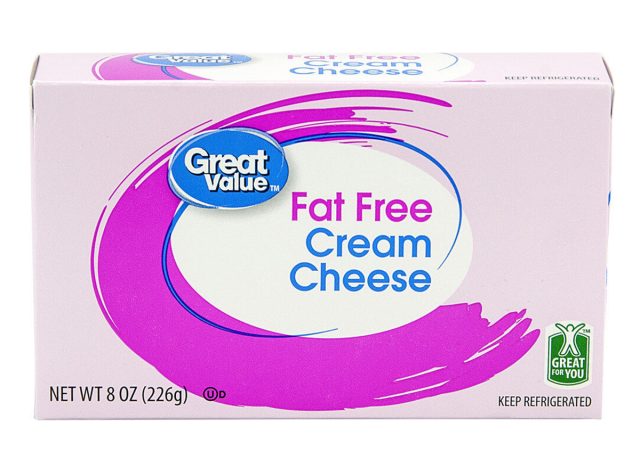
That’s another mistake dieters make that leads to unhealthy behaviors. “Fat-free foods don’t fill you up, so you end up eating larger portions of fat-free food which ultimately leads to overeating and intensified cravings,” says Shapiro. “When you remove fat from foods, it is often replaced with sugar to improve the taste.” Excess sugar eaten turns to fat, which is exactly what you’re trying to prevent.
Overdoing the protein
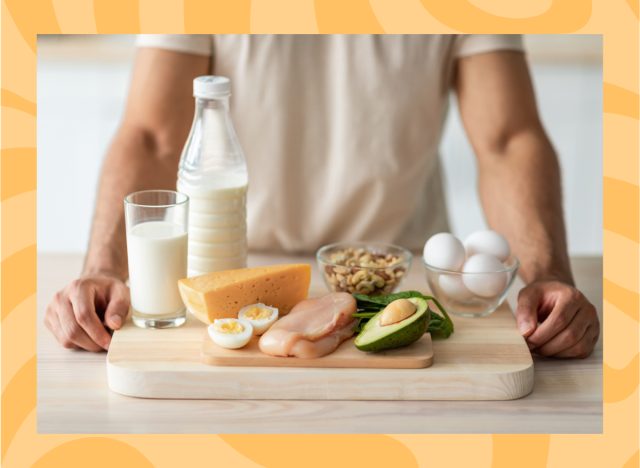
The low-carb obsession goes hand in hand with another—loading up on protein. “Many people think if I cut carbs, I can eat all the protein (think meat!) that I want without paying attention to portion sizes,” says Dr. Young. “I’ve seen clients gain weight using this approach.” A better way to eat for weight loss, says Dr. Young: “Include foods from all the food groups and pay attention to portion sizes as well as hunger levels.”
Going vegan
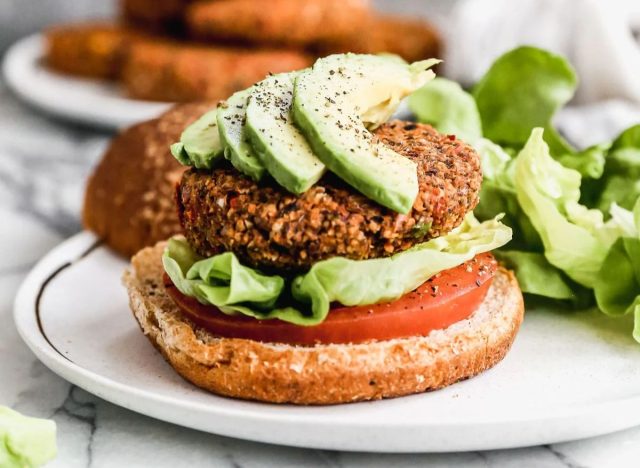
Eating a vegan diet can be healthy and certainly can help with weight loss. But if you don’t go about it the right way, you can end up gaining weight. “We see this frequently in our practice—a few servings of nut butter, several tablespoons of olive oil, and a big bowl of granola or pasta, and you may already meet your calorie needs for the day,” say The Nutrition Twins. If you go vegan, you may need to be extra vigilant about avoiding excess carbs, nuts, oils, and other calorie-dense foods. And remember: You can get a good dose of satiating protein from plants. Here are 20 Vegetables Ranked By Protein.



